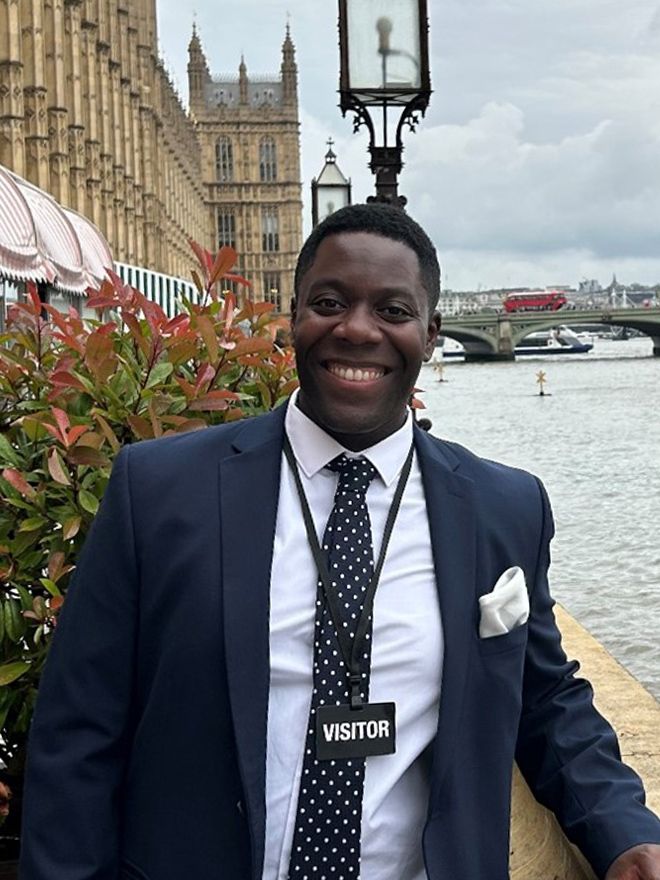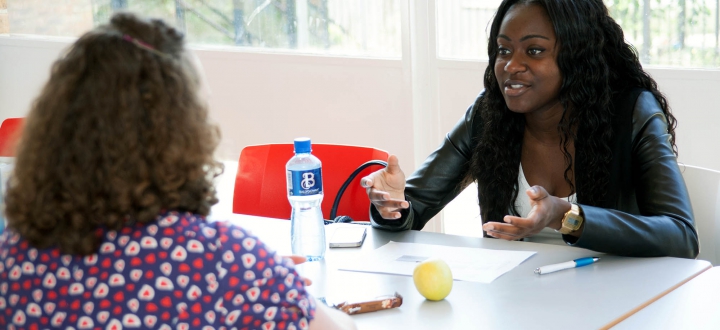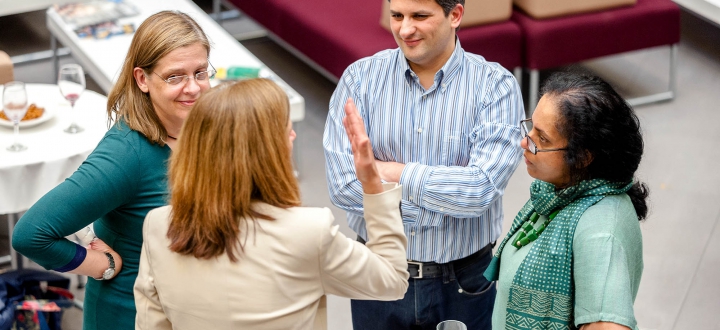Catching up with...Joseph Arday

Joseph Arday studied BSc Computer Information Systems Design and graduated from Kingston University in 2007. Joe's career began in the technology industry in IT consultancy and project management roles, before he embarked on a career in teaching and education. Joe has nearly 15 years' experience in computer science and STEM education in London secondary schools. Joe is currently a Learning Manager (curriculum, training and research team) at the Raspberry Pi Foundation.
Tell us about a typical day in your role at the Raspberry Pi Foundation?
My typical day as a Learning Manager includes creating content for educators and students on Raspberry Pi Foundation's The Computing Curriculum suite, which consists of a wide range of computer science topics and lessons. One aspect of my role involves identifying culturally relevant pedagogy (CRP) opportunities within The Computing Curriculum via research from the Cambridge University Computing Research Centre.
CRP is a framework for teaching that emphasises the importance of valuing all learners' knowledge, ways of learning, and heritage. It promotes the development of learners' critical consciousness of the world and encourages them to ask questions about ethics, power, privilege, and social justice. CRP emphasises opportunities to address issues that are important to learners and their communities.
Other aspects of the role include developing my career knowledge, working with amazing colleagues who I always learn something new from every day, and supporting the wider work of the Raspberry Pi Foundation, such as global curriculum projects around the world.
What is the biggest challenge and the biggest reward of your role?
The biggest challenge is ensuring the curriculum resources I am creating allow students to gain new knowledge and skills to reflect current changes in today's technology industry, as well as developing skills for life. For me, it is also important to ensure that students are being taught a curriculum that caters to the needs of different types of learners and offers opportunities to gain cultural capital through computer science education.
The biggest reward in my role is the opportunity to bring my teaching experience and passion for a culturally relevant computer science curriculum to ensure that students from underrepresented and disadvantaged backgrounds have opportunities to pursue careers within the computing industry.
What have been some of your career highlights?
One of my favourite projects that I have been involved with was Teach Computing's ‘Gender Balance in Computing' project. It's a national programme to encourage more young women from diverse backgrounds to take up computer science at GCSE and beyond and to consider a career in computer science.
Being part of the Raspberry Pi Foundation working group (with educators and academics from the UK and USA) that develop a set of CRP guidelines for teachers to make the computer science curriculum culturally relevant to all learners across the UK. It was great to see how my contribution will make a difference to fellow educators in teaching computer science, especially seeing my name on the list of contributors.
During last year's Black History Month, I was one of several educators featured in a TES educational resource called ‘Celebrating Black Computing' showcasing black excellence in computer science. This year, I have co–written a blog and created resources to promote the ‘Unsung Heroines of Tech' for International Women's Day.
I have been involved in several programmes run by organisations such as the Raspberry Pi Foundation, British Computing Society (BCS), Computing at School (CAS), Teach First, Tech She Can, STEM Learning UK, National Centre of Computing Education (NCCE), Apps for Good and The STEM Project, with the aim of actively encouraging students of all backgrounds to consider pursuing a career in computer science.
I have been part of the Foundation for Education Development (FED) Practitioners Council with the aim of driving social change within the education sector to improve the life chances of young people. During the summer, I was invited to the House of Lords by Baroness Morgan of Cotes to attend the launch of the FED report for changes to the education system. For the last two years, I have also been involved with the Future Leaders UK programme as a guest speaker in raising aspirations for young people from disadvantaged backgrounds across London.
I have been lucky enough to have my work recognised in computer science and STEM education and have been awarded fellowship status with both the Chartered College of Teaching (FCCT) and the Royal Society of Arts (FRSA). As well as being a professional member of the British Computing Society (MBCS), I have also been identified as a 'future fellow' of the BCS.
You have worked in a range of roles delivering STEM education. What drives you?
I feel strongly that young people of all backgrounds, but especially those from neurodiverse, underrepresented and disadvantaged backgrounds, should be able to consider a career in STEM free from barriers such as a lack of diversity, equality and inclusion.
Which graduate skill do you feel will be most valued in your industry in the future?
In my opinion, one of the most valuable graduate skills in teaching and education will be confidence. As the education landscape tends to change on a regular basis (e.g. the major boom of artificial intelligence in education), being ready for change is so important. Especially to feel confident enough to teach your subject or another subject using AI and Edtech tools to support the development of student learning.
What career advice would you give to recent graduates?
The first piece of career advice I would say to recent graduates is to follow your passion. You need to constantly keep up-to-date and understand the latest trends in your career field by reading articles and speaking to advocates. Secondly, don't be afraid to reach out to people who are more senior in your career field and ask for advice. I would even suggest networking with future colleagues via LinkedIn – you will be surprised the number of times organisations will reach out to you regarding career opportunities. So, make sure your LinkedIn profile is kept up-to-date, and where possible update your skills and knowledge by undertaking additional qualifications.
Finally, don't be afraid to change careers if you feel the current career path is not right for you. There is nothing wrong with starting again or going in a different career direction. No path in your career is a straight one – there will be twists and turns, but you will get there in the end!
What's your favourite memory as a Kingston student?
I have many fantastic memories during my time as a student at Kingston such as being part of a family community and meeting friends for life on my course. Also, representing the University as a captain and vice president of the men's football club, putting on a sporting event to raise money for the students' union charity during RAG week, becoming a two-time sports colours award-winner for services to football (I still have my colour caps!) and becoming a member of the sports council. And finally, my graduation day, due to the challenges that I had to overcome in being a student from a disadvantaged background. If I am honest, all these memories have helped shape the person that I am today.
Tell us something no one would guess about you.
I am currently training in Karate with the hope of one day achieving my black belt.
Contact us
Development, Alumni Relations and Engagement (DARE)
2nd Floor, Main Building
Penrhyn Road
Kingston upon Thames
Surrey KT1 2EE
Tel: +44 (0)20 8417 3664
Email us
Share your news
We love hearing from all Kingston graduates – no piece of news is too big or small, so whatever you have done or are about to do, email us and let us know!
Contact us
Development, Alumni Relations and Engagement (DARE)
2nd Floor, Main Building
Penrhyn Road
Kingston upon Thames
Surrey KT1 2EE
Tel: +44 (0)20 8417 3664
Email us

